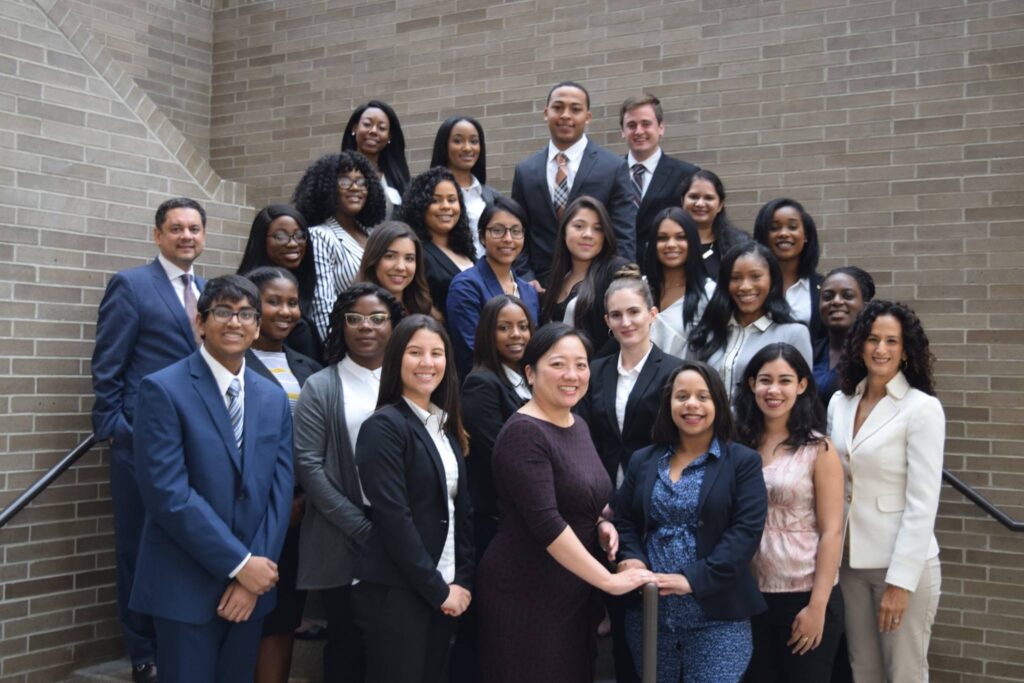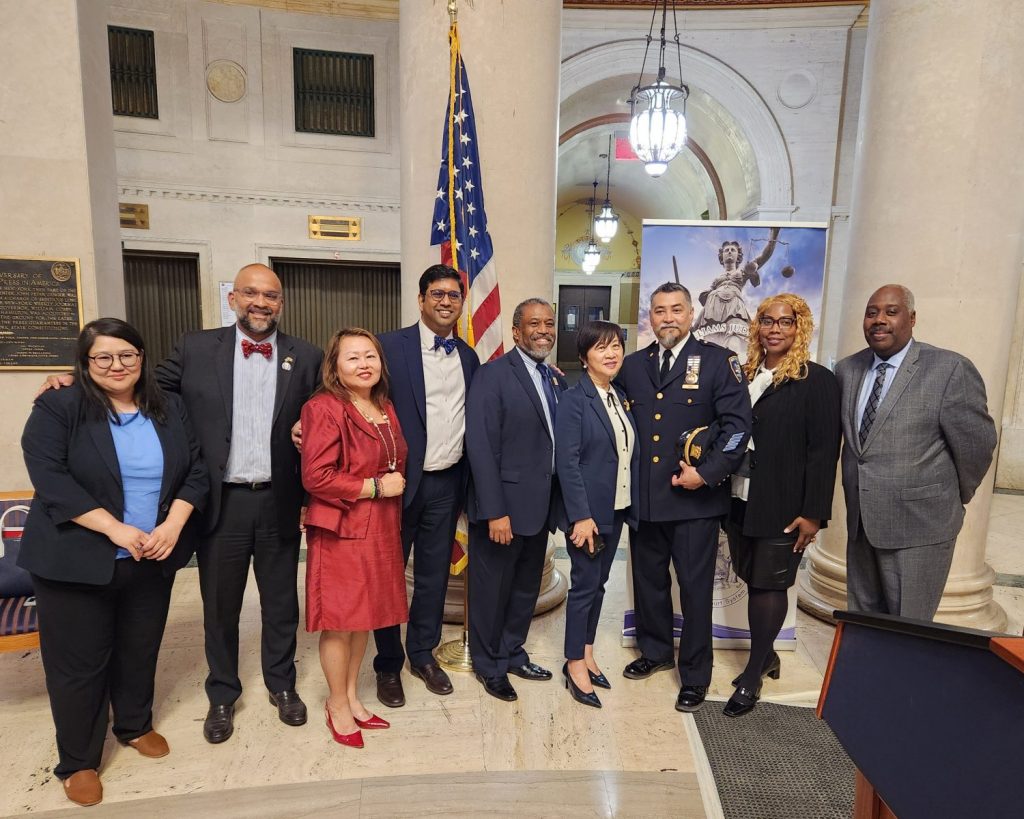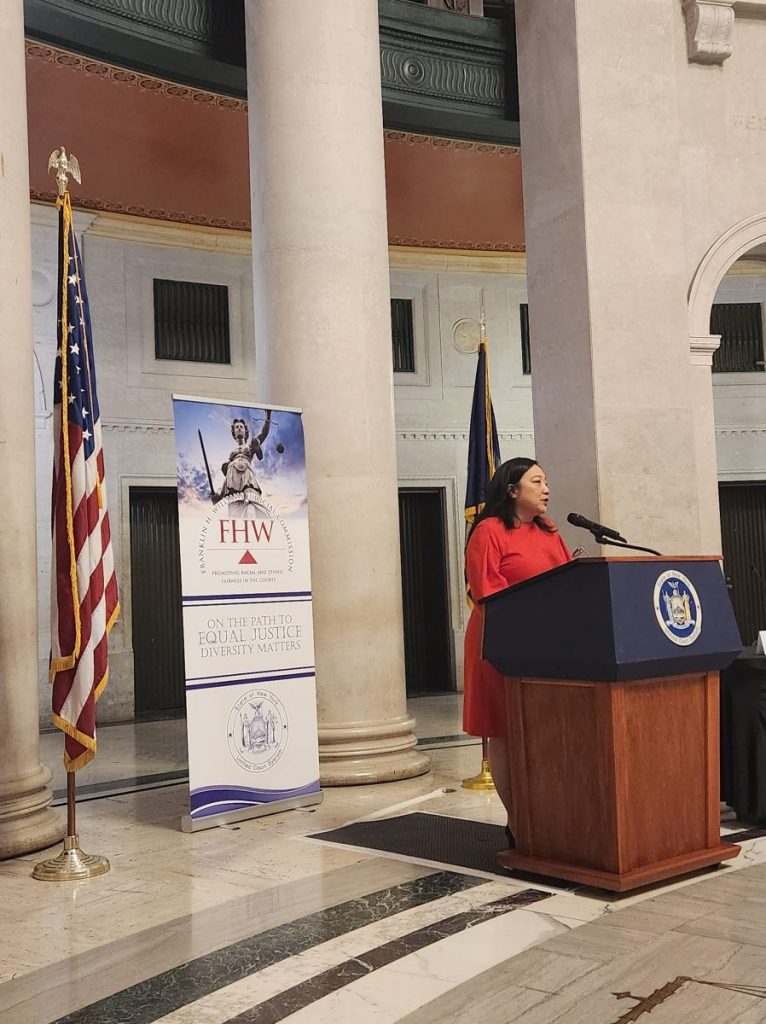In the early months of the COVID-19 pandemic, as headlines reported a spike in anti-Asian violence across the United States, legal scholar and former prosecutor Elaine Chiu found herself asking a question that few others were: was the criminal legal system actually helping Asian American victims? Her article, published in the Santa Clara Law Review in June 2025, The Model Minority Victim, emerges from this inquiry with a sobering answer. Drawing on a first-of-its-kind empirical database built by the Anti-Asian Violence Task Force (AAVTF)—a joint project of the Asian American Bar Association of New York (AABANY) and the Asian American Law Fund of New York (AALFNY)—Professor Chiu followed 276 reported anti-Asian hate crimes in New York City in 2021, tracking each case from the initial police response to prosecution and sentencing. Of those cases, only 25 resulted in hate crime convictions.

Beyond its grim statistics, Professor Chiu’s article offers a powerful critique of the structural and cultural forces that render the law ineffective when it comes to anti-Asian violence. She argues that outdated hate crime statutes, high evidentiary burdens for proving motive, and deeply embedded racial stereotypes, particularly the “model minority” myth, all contribute to a system that routinely fails to see Asian Americans as worthy victims of racism. The result, she argues, is a legal system that fails to protect Asian American victims and actively reinforces racial hierarchies.
Professor Chiu has a long-standing history of leadership in the legal field. In recognition of her leadership, AABANY honored Professor Chiu with their Women’s Leadership Award in 2025, presented during the AABANY Annual Dinner, held on May 29, recognizing her illustrious career and community service, including her work with AAVTF and her role in publishing the landmark report, Endless Tide: The Continuous Struggle to Overcome Anti-Asian Hate in New York. In her acceptance speech, Professor Chiu acknowledged the profound connection between law and identity: “The law feeds and nourishes our families, but it also feeds and nourishes our beliefs about humanity, our country, and our identity as Americans.” Reflecting on her formative years and career, she spoke about her enduring desire to help people, firmly placing her hope in the rule of law. She urged the audience to hold onto that hope and to “show up, stand up, and speak up.”

Building on her belief in the interconnectedness of the law and identity, Professor Chiu’s article is grounded in her experience as a former Assistant District Attorney. When asked how her background as a former ADA and legal scholar shaped her approach, she replied, “I always knew there was a whole other story of what could happen after an arrest.” While the police often serve as the first responders, the prosecutors are the ones who shape the legal narrative. Lawyers, she noted, are uniquely positioned to “chase the string on every case,” following each story beyond the moment of arrest to ultimately deliver justice.
Together with the AAVTF, Professor Chiu advocates for reform. She supports revising hate crime laws to clarify the types of evidence that can support a bias motivation and calls for improved training so that the police and lawyers can better recognize and pursue racially motivated violence. But she also acknowledges the limits of legal reform alone. Cultural narratives, too, must shift. Stereotypes that dehumanize Asian Americans, even in their most vulnerable moments, must be actively rejected.

The creation of the AAVTF itself speaks to this dual mission of legal and cultural change. Founded in 2021, the Task Force emerged out of a collective urgency to respond to the rising tide of violence and was designed to “cover the now,” as Professor Chiu explains. While the hope was that the AAVTF would someday no longer be needed, Professor Chiu remains steadfast in her desire for the surge in Asian American advocacy not to fade into silence. “It was electric,” she says, remembering the activism that rose alongside the hate. “I hope it doesn’t [go quiet].”
In The Model Minority Victim, Professor Chiu offers more than a critique of the criminal legal system. She gives us a way to see—to understand how and why justice fails, and what must change to ensure it doesn’t continue. The article is a reminder that legal reform, if it is to be meaningful, must be paired with a broader reimagining of whose pain the system recognizes, whose voices it validates, and whose lives it protects.
If you are interested in reading the full article, Chiu, Elaine M., The Model Minority Victim, 65 Santa Clara L. Rev. 451 (2025), you can find it here.



